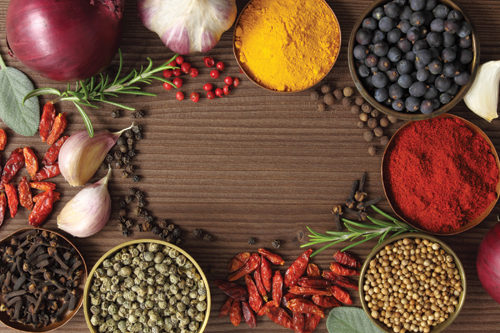Here, five top trends, as seen on the Expo West floor:
- Vegan. Lonza is among those leading the charge in vegan capsules, with their Capsugel Vcaps. NOW Foods makes a vegan capsule, too, with Hypromellose and water. Besides just being vegan, these capsules are free of the top 8 allergens, and with only two ingredients, maximize the number of consumers able to take it. What's more, avoiding animal-based ingredients makes them easier on the planet. AIDP also spotlighted plant-based ingredients and sustainability efforts in the eco-friendly processing of its selection of alginates (polyssaccharide produced from brown algae) to be used as a thickening agent, gelling agent, emulsifier or moisture retailer in a range of applications.
- Concentration. Naturex showcased Turmipure Gold, a new turmeric extract that offers a high bioavilability of curcuminoids in a low dose, which also translates to sustainability. Lonza has Oceanix, which works with a once-a-day 25mg dose. Euromed's Pomanox is cultivated through sustainable farming and through Pure-Hydro process to preserve the natural, water-soluble, polyphenolic composition of the whole pomegranate fruit. OmniActive’s Capsimax works in 2mg, and their Salacia supplement works in 300-500mg per day—instead of the 2,000mg often used in research. Lower dosages means fewer pills, which keeps consumers happy; it means the supplement can be added to food and beverages without affecting taste. It also means that each pill requires fewer resources. Sustainability is good business.
- Clean-label colors. Lonza has purple carrot coloring, blue spirulina coloring—all ingredients that look good in an ingredients list, while being vegan, gluten-free, and accessible to most people. And again, avoiding chemicals makes them easier on the environment.
- Compostable packaging. As foods, supplements, and non-edible products get better and more sustainable, conventional plastic packaging looks worse and worse—it’s hard to feel good about buying a sustainable product when using that product necessitates throwing the packaging in a landfill. Fortunately, World Centric has a tree-free compostable package fabricated with discarded sugarcane fiber and bamboo. Coconut Bliss packages their frozen desserts in a compostable package made with sugarcane husk. Sustainability shines here: no plastic, no dead trees, and sugarcane byproducts stop going to waste.
- Liposomes. Liposomes made WholeFoods headlines with Dr. Richard Passwater’s August and September 2018 articles; Steve Lankford, host of HealthQuestPodcast.com, has a podcast on WholeFoodsMagazine.com regarding the future of liposome nutrition. Aurora Nutrascience offers Mega-Liposomal products, as does Empirisome, which makes liposomal hemp CBD. Liposomes offer greater bioavailability with minimal consumption of energy, and as the technology becomes more readily available and more liposomal products hit the shelves, consumers are likely to jump on them.










